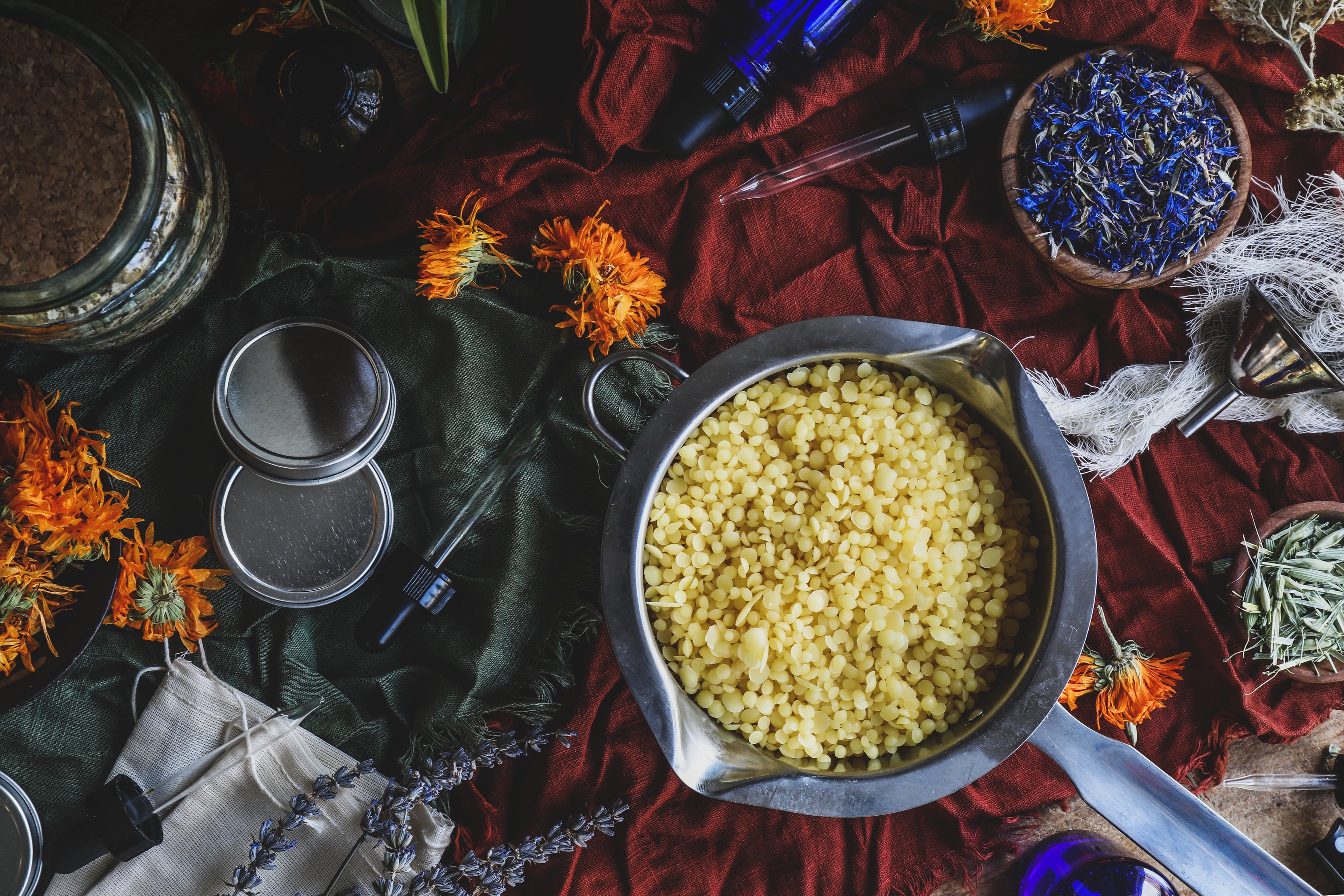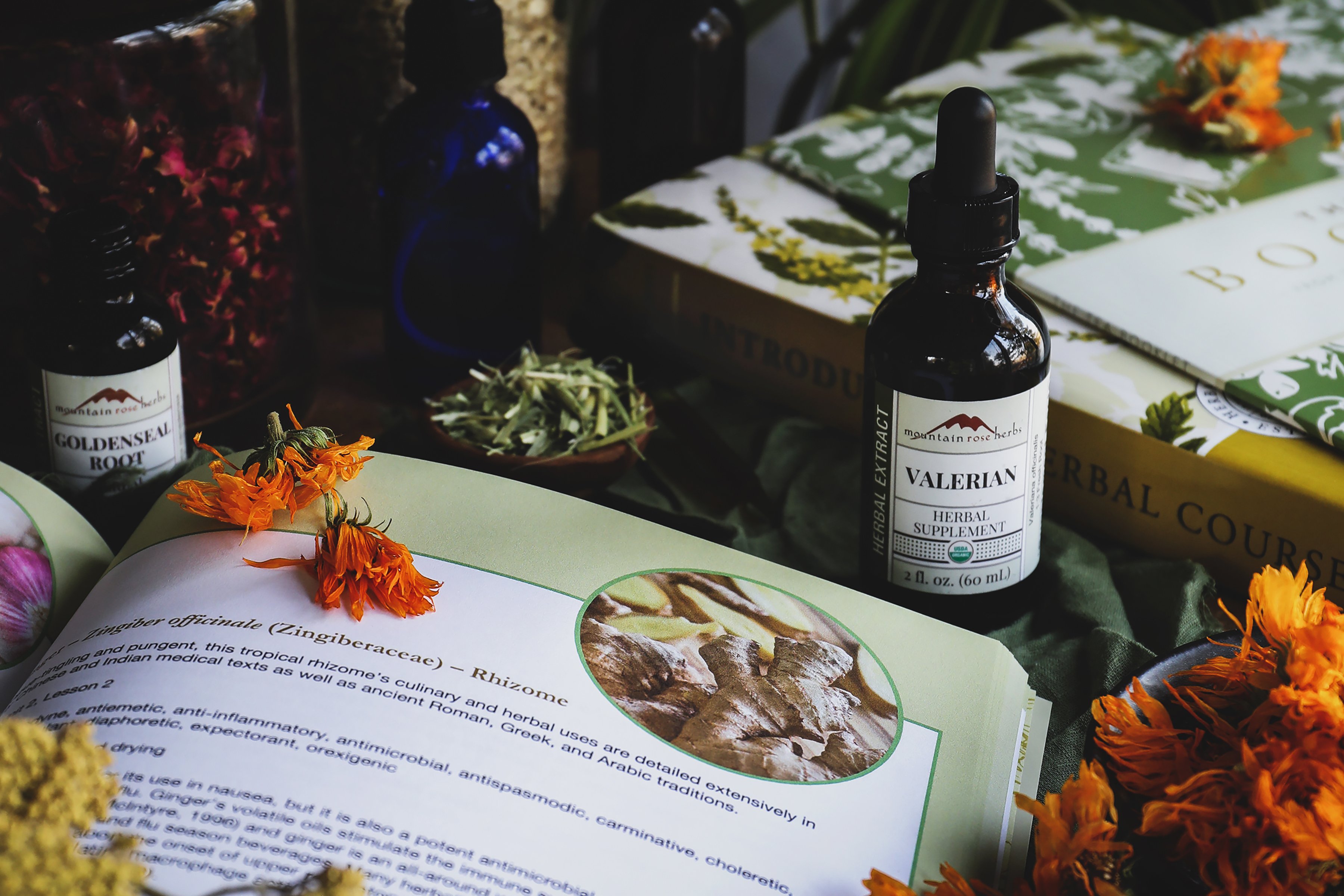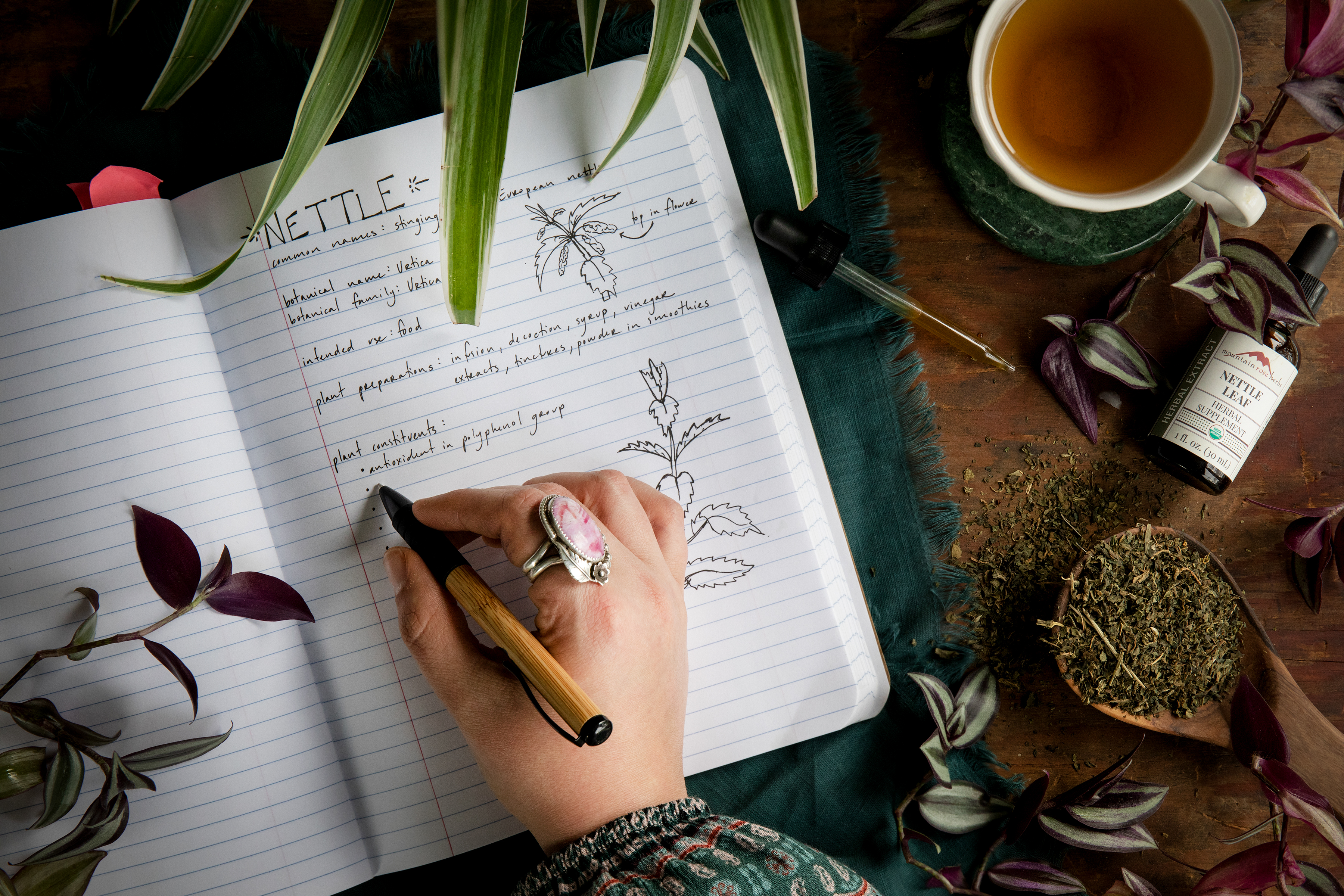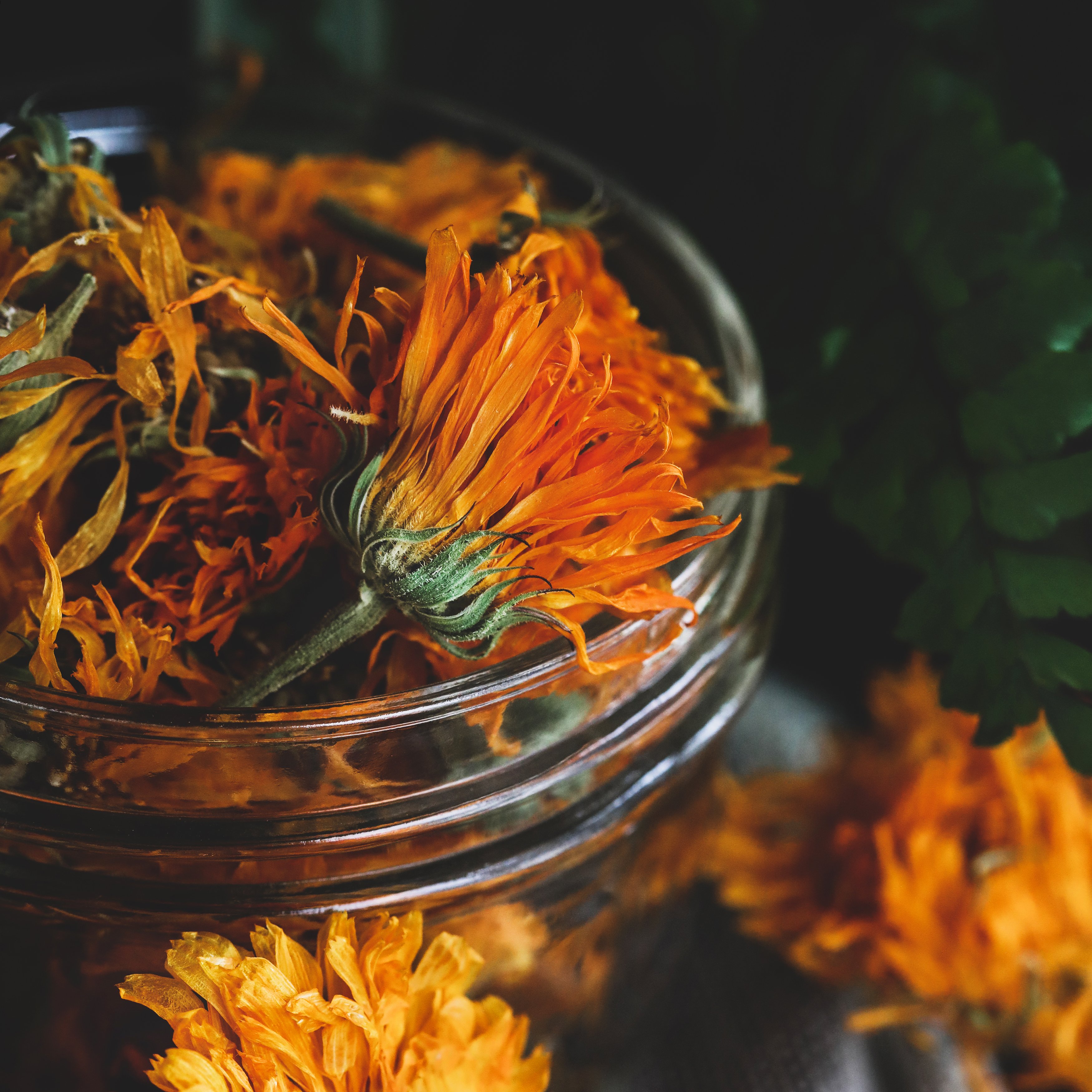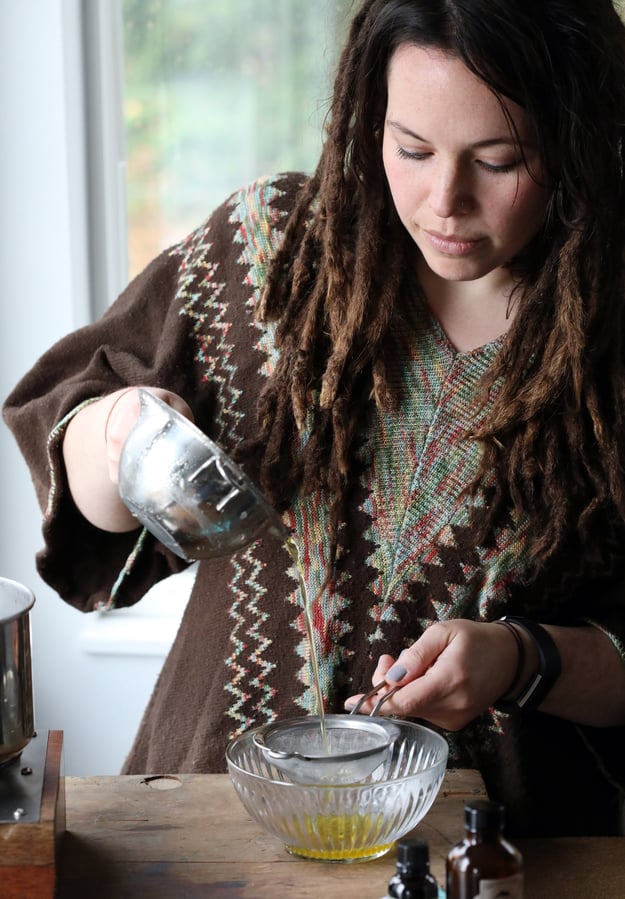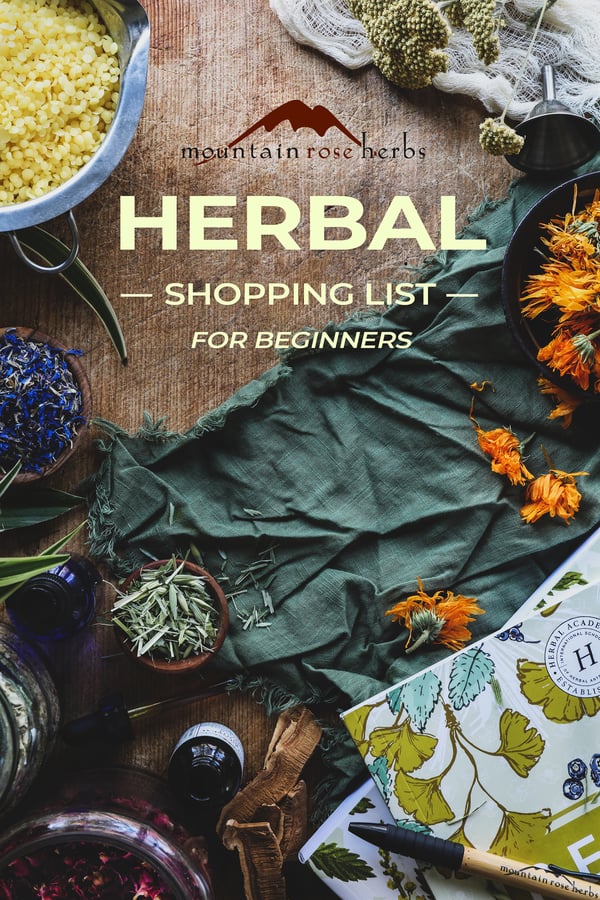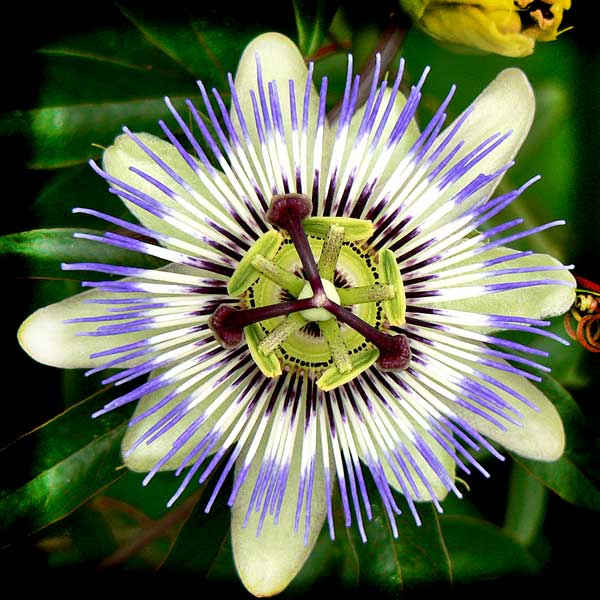Getting started in herbalism can feel like embarking on a great adventure! The journey is full of excitement, discovery, and learning, but may also include a little overwhelm and uncertainty. If you are new to herbalism, you’ve likely wondered how to begin and what herbs and supplies are best to keep on hand. At the Herbal Academy, we find great joy in guiding budding herbalists and have some tips on this topic.
Our online herbalism courses provide a strong foundation of knowledge, and we’ve carefully crafted a supply list that works beautifully in tandem with your herbal education. We are sharing the very list we supply to our Introductory Herbal Course and Intermediate Herbal Course students at registration so that you, too, can stock your herbal cabinet with all the essentials you need to put your learning right into practice!
*Tip: Did you know that students of Herbal Academy's foundational programs get 10% off herbs and supplies at Mountain Rose Herbs?
Studying herbs is an important part of the growth of all herbalists, but hands-on experience is incredibly important, too! Having supplies on hand allows you to become more familiar with specific herbs and develop practical skills and experience which will deepen your understanding and enhance your ability to use herbs in everyday life and acute situations.
How to Prepare a Personalized Herbal Shopping List as a Beginning Herbalist
When beginning your herbal studies, either through self-study or an herbalism program such as the Herbal Academy’s Introductory Herbal Course, you will explore foundational concepts, learn about many supportive herbs, and learn how to make simple herbal preparations like teas, tinctures, herbal honeys, syrups, herb-infused oils, and salves. As you move to more intermediate and advanced studies, you’ll dive deeper into learning about more herbs, preparing a variety of recipes, creating your own formulas, and how to support specific body systems and imbalances.
Once you dip your toe into the world of herbalism, you’ll notice how vast it is—there is an endless number of herbs to explore and herbal formulas to make. In fact, our Intermediate Herbal Course alone includes 185 recipes!
When you are just getting started, it can be a little daunting to determine which supplies you need to procure. To help mitigate time and effort at the outset (and enable you to dive right into your studies) this supply list for beginning herbalists allows you to conveniently find and purchase necessary items online so you can easily incorporate them into the learning process. This shopping list includes herbs that are interwoven into our course curriculum to encourage a depth of understanding and familiarity.
We find it most useful to ask yourself a few important questions as you review the shopping list. Answering these questions will bring light to your current needs and help you discover which items are necessary in order to reach your personal goals and to grow as an herbalist.
Where am I at in my herbal study journey?
If you are a beginner, your goal may be to become familiar with a small number of more common herbs and learn how to use them in simple preparations like tea blends or body care. If you already have some herbal background, you may be ready to delve into learning about a wider array of herbs or more advanced herbal preparations and formulations.
What are my herbal interests?
In order to have the herbs and tools on hand that you’ll need, explore what you are passionate about; for instance, you may have a passion for tincture making or crafting herbal teas. You may also consider if you have a special interest in a particular body system or category of herbs. For example, do you want to dive deeply into herbs for the skin and body care? Maybe you’ve found that you’re really interested in particular preparations, such as infused oils for topical use, and that’s where you want to focus your hands-on explorations. Perhaps you’re interested in herbal teas that support the nervous or digestive systems or tinctures that provide immune support. Or, maybe you prefer to follow along with an herbal course of study and learn about each herb as it is presented.
In what way do I want to incorporate herbs into my life?
Considering your own personal circumstances and stage of life is helpful in narrowing down the herbs you’ll want to have on hand. For example, if you have children at home, you might be interested in keeping child-friendly herbs accessible to use for teas and syrups. If you are feeling uncertain about making herbal preparations to support various ailments, you might like to start by incorporating kitchen herbs into cooking more regularly and utilizing herbs as nutritive tonics.
What tools do I already have?
In reviewing our shopping list, you’ll find that many common kitchen tools and household supplies can be used to support your herbal studies. Checking to see what you already have available to you is a great way to save money and cross those off your list!
With these questions in mind, let’s dive in!
14 Herbs for Beginners
We’ve compiled a short list of 14 herbs that are woven into Herbal Academy’s Introductory and Intermediate Herbal Course lessons as well as our Herbal Recipe Card Set and fit into multiple categories. Of course, this is not exhaustive, but serves as a starting point! If you are just getting started, we suggest focusing on a few categories that interest you the most.
Herbs for Teas and Tinctures
- Chamomile (Matricaria chamomilla) flower
- Dandelion (Taraxacum officinale) root
- Echinacea (Echinacea spp.) root
- Lemon balm (Melissa officinalis) aerial parts
- Licorice (Glycyrrhiza glabra) root
- Nettle (Urtica dioica) leaf
- Peppermint (Mentha x piperita) leaf
Herbs for Syrups
- Chamomile (Matricaria chamomilla) flower
- Elder (Sambucus nigra or S. canadensis) berry and flower
- Lemon balm (Melissa officinalis) aerial parts
- Peppermint (Mentha x piperita) leaf
Herbs for Digestive Support
- Catnip (Nepeta cataria) leaf
- Chamomile (Matricaria chamomilla) flower
- Licorice (Glycyrrhiza glabra) root
- Peppermint (Mentha x piperita) leaf
Herbs for Immune Support
- Astragalus (Astragalus mongholicus) root
- Echinacea (Echinacea spp.) root
- Elder (Sambucus nigra or S. canadensis) berry and flower
- Licorice (Glycyrrhiza glabra) root
- Peppermint (Mentha x piperita) leaf
Herbs for the Nervous System
- Catnip (Nepeta cataria) leaf
- Chamomile (Matricaria chamomilla) flower
- Lavender (Lavandula spp.) flower
- Lemon balm (Melissa officinalis) aerial parts
- Peppermint (Mentha x piperita) leaf
- Rose (Rosa spp.) petal
Herbs for Body Care and Topical Applications
- Chamomile (Matricaria chamomilla) flower
- Calendula (Calendula officinalis) flower
- Lavender (Lavandula spp.) flower
- Rose (Rosa spp.) petal
Herbs for Children
- Calendula (Calendula officinalis) flower
- Chamomile (Matricaria chamomilla) flower
- Lavender (Lavandula spp.) flower
- Lemon balm (Melissa officinalis) aerial parts
*It's important to note that herbs are not always safe for every person and/or may have contraindications, so do your research using reputable herbal sources.
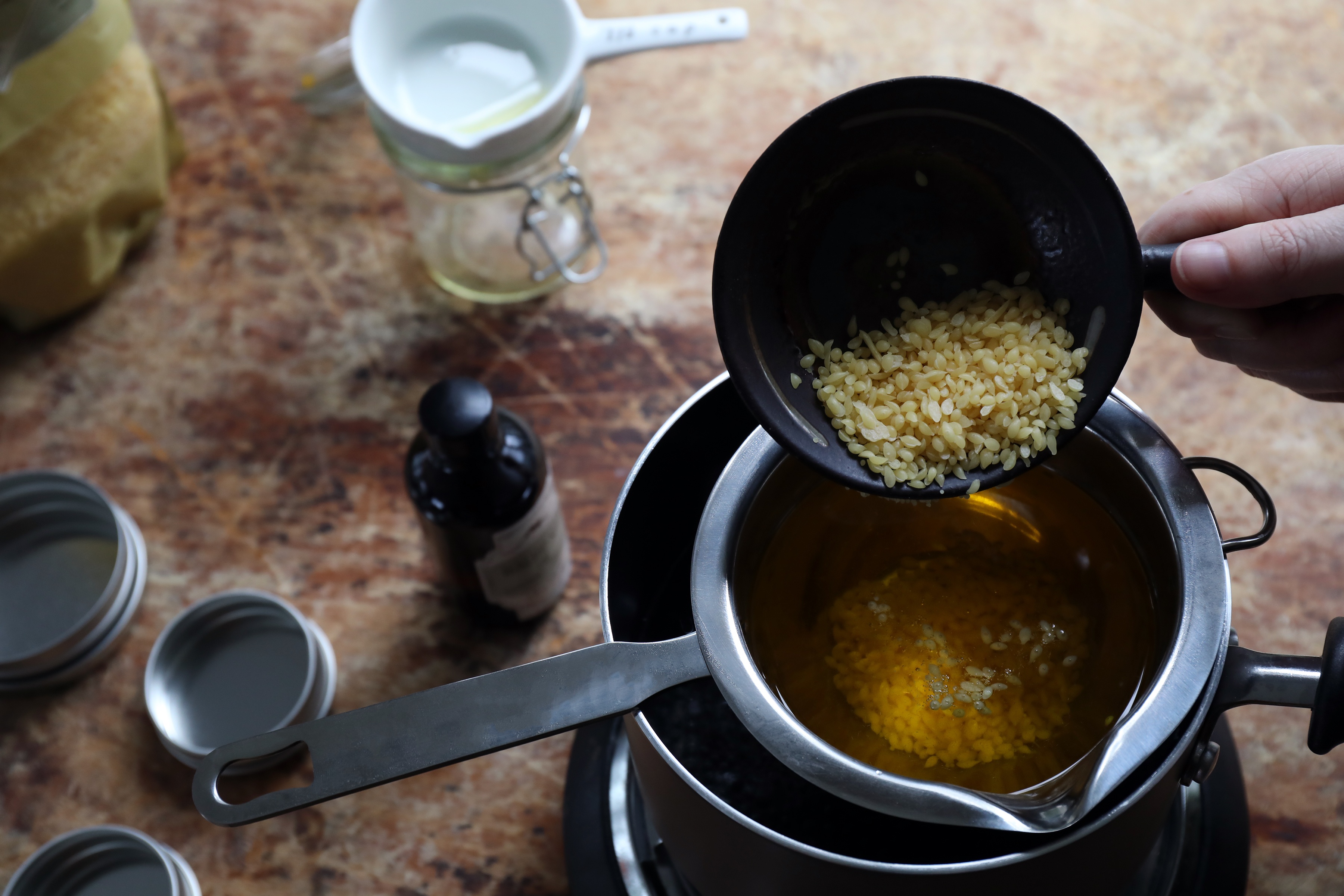
Other Ingredients You'll Need to Build Your Home Apothecary
Depending on what you would like to make, a few other ingredients are needed to bring your herbal preparations to life.
Waxes
- Beeswax: Wax is needed to make salves, balms, lotions, and creams. Beeswax pastilles are the easiest to measure and use.
- Carnauba wax is a good vegan alternative.
Carrier oils
These oils are used to create a variety of body care products and herbal topical applications including herb-infused oils, salves, balms, and creams.
Good choices include:
Culinary Oils
These are useful in making infused oils for cooking, but also work well in many topical applications, such as herb-infused oils and salves.
A popular culinary oil among herbalists is extra-virgin olive-oil. Avocado oil is also a favorite, especially for herbal food preparations.
Tins and Containers
- Salve tins: These are a go-to option for salves and balms. We recommend purchasing three sizes (½ oz., 2 oz., and 4 oz.).
- Tincture bottles: 1 and 2 oz. dropper bottles will allow you to bottle your homemade tinctures for easy use. If you think you’d like to have tinctures on hand, you’ll want to purchase a number of these.
- Spray bottles: 4 oz. spray bottles are great for a variety of herbal preparations, including body sprays (such as after-sun spray and bug repellent spray), and larger spray bottles are ideal for non-toxic cleaning sprays.
- Organic cotton muslin bags: Muslin bags are wonderful for making herbal tea infusions and herbal bath blends. They are great for personal use, but also make herbal gifting super simple!
Common Household Tools and Supplies for Making Herbal Preparations:
To make the projects and recipes you are learning about, you will need a few additional tools and supplies. Some of these you’ll likely have on hand already!
- Glass canning jars
- Cheesecloth
- Strainer
- Large bowls
- Double boiler
- Funnel
- Natural waxed paper
- Raw wildflower honey
- Apple cider vinegar
- High proof brandy or vodka
Tools to Support your Herbal Studies:
In order to be ready to make the projects and recipes you are learning about in our courses, you will also need a few desk supplies.
- Notebook and pens/pencils for jotting down study notes, recipes, observations, and formulas.
- Index cards (we recommend using the larger 5x8-inch size) are great for keeping herbal notes and recipes, and for creating flashcards for study.
Conclusion
As you think about your current herbal experience, next steps in herbal education, and your goals and interests, we hope this list of herbs and supplies helps you hone in on the items you would like to have at-the-ready. By assessing what you have on hand already and determining what you still need, you’ll feel confident in creating an herbal shopping list that’s unique to your herbal journey. Enjoy your studies and hands-on learning!
Want to learn more about Herbal Academy?
Find Recipes, Articles, and Online Courses Here!
You may also be interested in:
- Building an Herbal Library: Our Favorite Books
- How to Find a Qualified Herbalist or Natural Practitioner
- Guide to Basic Herbal Actions

